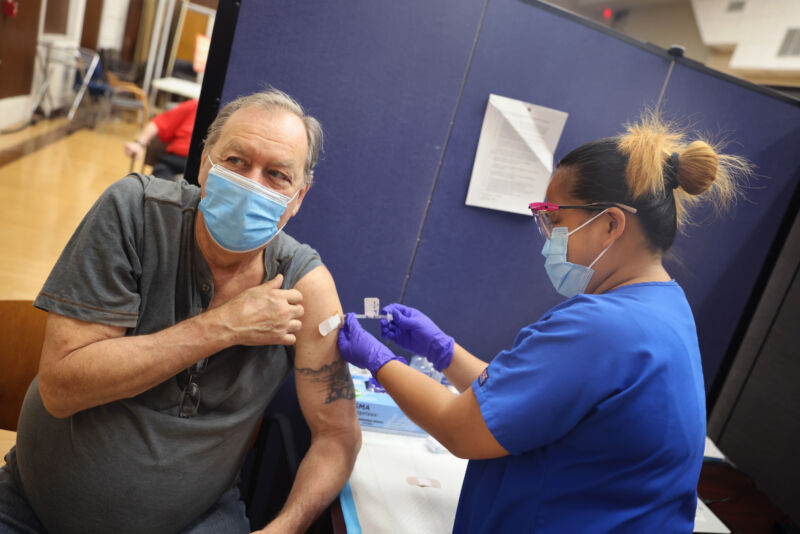
Enlarge / A health worker administers a COVID-19 booster vaccine and an influenza vaccine to an Army veteran at the Edward Hines Jr. VA Hospital on September 24, 2021, in Hines, Illinois. (credit: Getty | Scott Olson)
Over the past few weeks, federal health advisers pored over data on booster doses for Pfizer’s COVID-19 vaccine and agonized over setting recommendations for who—if anyone—should get a third shot. Amid their deliberations, they continually noted an undeniable truth overshadowed their hand-wringing: no matter what they recommended, boosters will have minimal impact on the pandemic. Instead, the way to end the scourge is to have more people get their first shots.
After all the debate, the director of the Centers for Disease Control and Prevention on Friday overruled the agency’s independent advisers. The director opened boosters to health workers and others with high exposure risks, in addition to the elderly and people with underlying medical conditions.
And today, new survey data suggests that offering any boosters may deter some unvaccinated from getting their first highly effective COVID-19 vaccine. A total of 71 percent of unvaccinated people said booster doses show the vaccines are not working as well as promised, according to the survey results published Tuesday by the Kaiser Family Foundation (KFF).
